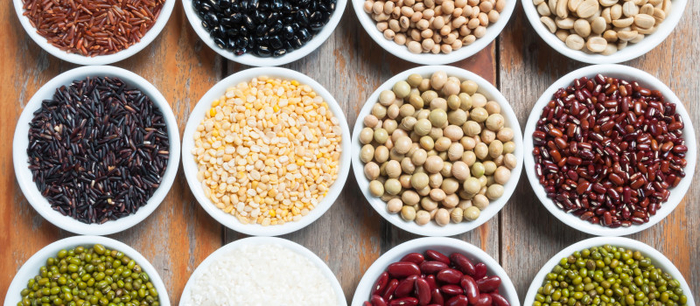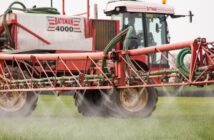Franek Smith, President of BEPA, 2017 comments that it has been an interesting year for pulses with a variable harvest across the board – whether for peas or beans – leading to a changeable marketplace.
“Yields and quality have varied around the country, with yields better and quality poorer than 2016, presenting both challenges and opportunities for growers and the trade alike.
“Beans in the south of the country were severely affected by Bruchid beetle, and crops in the north suffered more from staining after a wetter harvest. The quantity of crop meeting the exact visual demands of export quality is significantly down on previous years, which means there will be opportunities for feed users and feed exports.
“Peas from across the country were affected by bleaching, again due to the catchy harvest weather. This has presented challenges for the whole industry with a larger than normal proportion heading for the animal feed sector
On the plus side, farmers who truly produced excellent quality in 2017 received a good premium.
“Looking forward to both the New Year and crop 2018, there are both opportunities and challenges for farmers, merchants, processors and end users.
“Legislative changes regarding Ecological Focus Areas (EFAs) pose a challenge as the use of plant protection products is now prohibited on EFA land for crop 2018. “Whilst the finer details are still becoming clear, it appears that unless growers are able to squeeze catch crops in after their pulses, or are prepared to take two spring crops in a row, the option to grow pulses on EFA land will require them to be grown without agrochemicals for pest and disease control.
“We have made our opinion as an industry felt to the agricultural press and our statement is available on the BEPA website. While some believe the change will dissuade farmers from growing pulses, the industry feels that it could simply push onus back onto the farmer to look closer at their hedgerows, field margins and unprofitable proportions of fields – time will tell.
“Anecdotally, the area of winter beans is considered to be up for 2018 as many farmers saw the opportunity to drill, and the quality of winter beans are generally considered to be better than spring beans this year.
“On a positive note, as growers look to spring 2018, the benefits of pulses to their rotation will continue to be apparent. For marrowfat pea growers the realisation that the stocks accumulated from 2015/16 are likely to be diminished will raise the prospect of potentially increasing returns, especially for export quality.
“Bean growers will note that the premiums on human consumption export quality have risen again this year and that demand has been maintained. The re-establishment of significant feed quality exports to the Mediterranean area demonstrates that currency and availability are important factors in market access. “Also the fish feed market continues to expand year on year.
“New pulse-using industries are slowly establishing in the UK, whether for pulse snacks or food ingredients such as ours. Although it may be a little while before they have a huge impact on demand, the trend is clear – the market for UK grown pulses is slowly but surely expanding.
“Turning to BEPA’s role in promoting the market, we have been very active in 2017 following on from International Year of Pulses in 2016. For example, we have continued our work meeting and educating children, promoting the pulse story to over 10,000 under-11s through the course of the year.
“We have also joined the All Party Parliamentary Food and Health Forum which discusses current food safety issues. The most recent meeting discussed carcinogenic foods and what can either increase or decrease the risk of getting cancer – with pulses being ones that can decrease your risk!
“And marrowfat peas growers will be pleased to hear that in November International Mushy Pea Day reached over 6,000 fish and chip shops across the UK to promote the sales of mushy peas.
“In summary, BEPA members look forward to supporting a wide range of initiatives in 2018 to encourage consumption of home-produced pulses to the benefit of growers, the trade and the British consumer.




